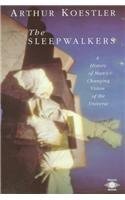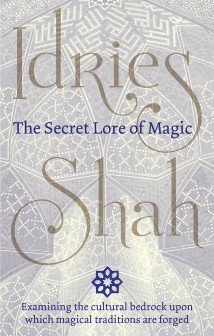
The Occult
Book Description
Dark forces whisper through the shadows of human experience, beckoning the curious and the brave. In "The Occult," Colin Wilson dives into the uncharted territories of the mysterious and the arcane, exploring the profound influence of supernatural beliefs on humanity. From ancient traditions to modern practices, this compelling journey unveils the hidden connections between mysticism and our deepest fears. With gripping insights and haunting revelations, Wilson challenges the boundaries of reality, forcing a confrontation with the unknown. What secrets lie beyond our perception, waiting to be unleashed?
Quick Book Summary
"The Occult" by Colin Wilson is a sweeping exploration of the mysterious and often misunderstood realm of the occult. Wilson traces the history and development of occult thought, examining its roots in ancient civilizations and its continuing influence in the modern world. The book navigates through topics such as magic, mysticism, psychic phenomena, and the development of consciousness. Wilson evaluates prominent personalities, questionable charlatans, and groundbreaking thinkers who shaped occult beliefs. He also delves into humanity’s perennial fascination with the unknown and the supernatural, offering psychological and philosophical insights into why people pursue mystical experiences. Ultimately, Wilson encourages readers to approach the occult not just as superstition, but as a window into human potential and the boundaries of reality.
Summary of Key Ideas
Table of Contents
Origins and Evolution of Occultism
Colin Wilson begins "The Occult" by examining how ancient societies first engaged with supernatural forces. He investigates early religious rituals, the worship of gods and spirits, and the development of magic as a practical tool for influencing the unknown. By tracing these early expressions through various cultures—such as the Egyptian, Greek, and medieval European traditions—Wilson reveals how the occult functioned as both a means of understanding reality and a response to existential fears. This historical foundation sets the stage for the book’s persistent question: why has humanity always been drawn to the hidden and mysterious?
Interplay Between Science, Magic, and Mysticism
Wilson then considers the clash and eventual interplay between scientific reason, magic, and mysticism. He explores how the rise of scientific thinking in the Enlightenment era challenged and sometimes dismissed occult beliefs, yet also led to a new generation of thinkers who tried to reconcile spiritual experiences with rational inquiry. The investigation includes discussions of alchemy, astrology, and the birth of psychology, exposing how the boundaries between science and magic are often less clear than presumed. This dialog reveals the resilience of occult thought in a modern, skeptical world.
Psychological and Philosophical Dimensions
Delving deeper, Wilson provides psychological and philosophical interpretations of occult phenomena. He draws upon ideas from Jung, Freud, and existentialist philosophers to suggest that occult experiences—such as visions, apparitions, or altered states of consciousness—reveal hidden aspects of the human psyche. Wilson posits that the occult serves as a metaphor for our quest for meaning, self-realization, and mastery over the unknown. The book argues that the supernatural is intimately tied to the mysteries of human consciousness, rather than being mere fantasy or deception.
Notable Figures and Movements
Throughout his study, Wilson profiles key individuals and movements that have shaped the occult tradition. Figures such as Aleister Crowley, Helena Blavatsky, and Gurdjieff, along with movements like the Hermetic Order of the Golden Dawn, are explored for their contributions and controversies. Wilson approaches these personalities with a critical but open mind, questioning their legitimacy while acknowledging the impact their ideas had on popularizing esoteric practices and challenging conventional worldviews.
Human Potential and the Limits of Reality
The book concludes by considering what the occult means for humanity's future. Wilson argues that the study of the occult is less about supernatural powers and more about expanding human potential—unlocking latent abilities within the mind. He contends that embracing the unknown fosters creativity, resilience, and a deeper understanding of existence. Confronting the limits of reality, Wilson invites readers to keep questioning and exploring, suggesting that the boundaries between the "real" and the "hidden" are more permeable and promising than we often imagine.
Download This Summary
Get a free PDF of this summary instantly — no email required.





